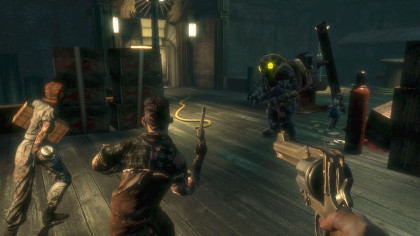All throughout my Ph.D., I tried to understand what makes us avoid cognitive effort. The concept of ‘effort avoidance’ just felt so intuitive, specifically when I was struggling with the requirements of a Ph.D. program. Cognitive effort must have held an intrinsic cost!
On a typical day (and not just during a Ph.D. program!!), we avoid effortful tasks pretty naturally. We use our calculators to split the bill, use GPS instead of a road map and watch TV at the end of the day instead of solving a puzzle. We are cognitive misers!
However, despite this cost, I was trying to specialize in my field, wasn’t I? And I, for sure, wasn’t the only one! My colleagues, millions of people in the world, anyone who ever specialized in an occupation or anyone who ever invested in any challenging hobby, was doing the same. They kept persisting at their tasks despite the cost. In fact, if everyone all the time avoided effort, there would be no discoveries, inventions, practically nothing that make up who we are! Realizing this obvious paradox made me question the idea that all effort was created the same.
In fact, on one of those days, Josh was insisting that I learned how to play his favorite video game, BioShock, so I finally decided to give it a shot. Mind you, this was the first time I was using a joystick.

BioShock: a Big Daddy defends a Little Sister (both on the right) from two Splicers, while the player watches. Wikipedia
My thumb-eye coordination was terrible – I could not potentially move towards where I intended to walk in this virtual world, let alone shoot enemies. My virtual gaze was so out of sync with my virtual walk that I could not even see who was shooting at me. I died. Every. Single. Time. I was extremely frustrated and almost upset with him for even trying to get me into it. I HATED gaming. It was such a waste of time!!
Thankfully my dramatic exacerbation did not phase him. The next day, he came with a much simpler 2D game, called Ori and the Blind Forest. It looked like a children’s game. It probably is one. In this game I mainly had to walk left or right. No enemies were in sight just yet: just exploring a 2D environment. Move left: discover a bag of glittering stuff; move right: pass through this mysterious forest.
It started to click for me. Through this game, I started building my thumb muscles in small steps.
The following day, with my thumbs feeling muscle soreness, I was already passing to the next level. I was even enjoying the story in the background, interacting with the environment, using a slingshot to kill enemies and all! It was super fun!
So, what changed? Why did I start enjoying gaming after I hated it just the previous day?
It’s because Bioshock was waaaaay over my initial capacity. There was no way I could learn how to use a joystick at the same I could learn how to attend to my virtual environment and shoot enemies. It was overly frustrating! While playing Ori, I was able to master these skills one at a time, giving me a sense of progress. In turn, this feeling of progress was boosting my arousal, making me feel like the task was no longer too costly, so I could actually enjoy it.
That’s exactly what we found in our latest study. In a novel paradigm, we first assessed the capacity of each participant at an arithmetic summation task. In this capacity phase, we identified the task levels participants performed at 100, 75, 50 and 25% accuracy. Next, we had the participants perform these task levels separately in a block design. During each block, we measured pupil dilation as an index of noradrenergic arousal. Moreover, at the end of each task block, we asked participants whether they felt a state of flow.
The results showed that participants reported greater flow scores following the performance of intermediately difficult tasks and pupillary measures of engagement followed the same trend. Specifically pupil size tracked the moments when people performed better than they expected (performance prediction errors) or when they reduced uncertainty about their task performance over time (minimization of prediction errors), both of which were greater during intermediately challenging tasks.
In other words, when people are certain of their performance (whether certain that they will get the next question right, or certain they will get the next question wrong) they don’t get any room for performance uncertainty and hence, there is no room for performance improvement. However, performance improvements give us that arousal boost that we need to keep going and persisting at challenging tasks. In their absence, we might just choose to quit because effort indeed is costly and there would be nothing counteracting that cost.
So, perhaps the next time you find yourself avoiding a task, ask yourself if you are learning anything new? Perhaps it is a really easy task for you that you don’t feel like you’re gaining much from it. Or perhaps, it is way over your current task capacity, and you need to be eased into it slower. Because once you feel like you are making progress, it might put you in a state of flow!
PS: A year later, I can now play Bioshock and it’s pretty awesome! 🙂